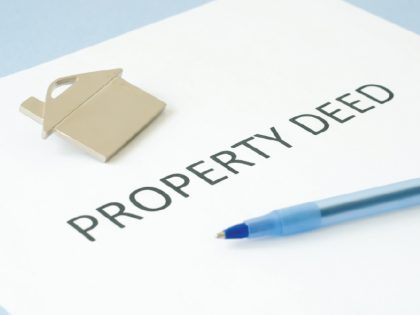Why Use A Real Estate Attorney?
Purchasing a home will probably be one of the most if not the most significant purchase you will make in your life. It also involves the transfer of real property, which involves may aspects of law. A lawyer is trained in the legalities of transferring property and has the experience to deal with the unique problems which sometimes arise during the transfer of property.
Legal Terms
A lawyer can help you understand some of the terminology used during the transaction. It is important that you understand what you are signing and the legal ramifications of the documents you sign.
Contracts or Purchase Agreement
The real estate contract or the purchase agreement is the single most important document in the entire transaction. Although real estate professionals and buyers and sellers often use standardized pre-printed forms it is helpful to consult an attorney to make changes that correctly reflect the negotiations between the buyers and the sellers. There are many issues that will be addressed in the real estate contract or purchase agreement such as the exact legal description of the property and improvements being purchased, the purchase price, time of closing, earnest money, proration of taxes and assessments, contingencies, etcetera.
Title Search
Once the contract has been signed, it is necessary to establish that the sellers have good title to the property and that there are no clouds on the title and/or that the buyers and the buyer’s lender are satisfied with the condition of the title. Most attorneys order a title search from an abstracting company or a title insurance company. In Mississippi title insurance is optional so it is essential that an attorney review the status of title and render an opinion of title or issue a title policy. If you choose to purchase title insurance, an attorney can help review the title search and explain the title exceptions. They can explain what is and is not insured. An attorney can also explain the effect of easements and agreements or restrictions imposed by a prior owner or a homeowner’s association, and whether there are any legal restrictions which will hinder your ability to sell the property.
Closing
The closing is the event wherein the purchase and sale transaction occurs. The deed or assignment of lease and other closing papers must be executed. Title passes from seller to buyer, who simultaneously pays the balance of the purchase price. Often, the buyers pay the balance from loan proceeds loaned by a mortgage company or lender. Thus, the buyer must also close a loan at the closing. A closing statement should be prepared prior to the closing indicating the debits and credits to the buyer and seller. An attorney is helpful in explaining the nature, amount, and fairness of closing costs. The deed and mortgage instruments are signed, and an attorney can insure that these documents are executed correctly and explained to the various parties.
The closing process is complex and can be confusing to the buyer and seller. Those present at the closing often include the buyer and seller, their respective real estate agents or real estate broker, the loan officer and the closing attorney. After the closing, the attorney will make sure the transfer instruments and deeds of trust are recorded with indexing instructions. They will pay off the sellers’ mortgages and any other liens. They will also collect payment for any third parties listed on the settlement statement and any real estate commissions due. Finally, the attorney will insure that the closing documents are returned to the lender and the originals of recorded instruments and title policy (if applicable) ultimately are sent to the buyer.
Gretchen Gentry
Attorney
RANDALL | SEGREST











